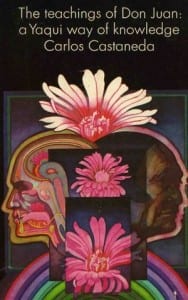With a PhD you are never lonely. At least, not in the cognitive sense. There’s always something to read, write or reflect on. My enforced immobilisation has been in the company of text. No longer piles of paper and books across my floor. I’ve become neurotic about picking up the smallest bit of anything. Instead I’m surrounded with books on the settee, the coffee table and three dining chairs positioned for the purpose. I won’t slip on paper but I need to take care not to trip over chair legs.
For some time I’ve had problems with PhD boundaries. My reading was unstructured. Books started but not finished. Journal articles would arrive and I’d forget why I wanted them. Some times I’d forget by the time I picked up my printing. I was searching for research validation, for recognition – like a mirror on the pages.
It took time but I’ve found it in slim volume called The Action Research Dissertation*. Dated 2015 it explains how the AR dissertation is the new kid on the block. Not only do the authors give valuable advice on how to prepare for defending your AR, they also offered the resonance I needed. The aim of the action researcher is to study themselves ‘… in relationship to the program [they’ve] developed or to fold the action research immediately back into the program in terms of professional or organisation development…’ (2015:42). I couldn’t have put it better myself; the problem being I didn’t believe researching my own practice this was enough. Some deeply embedded discourse about the nature of academic research was telling me my choice was inadequate. It didn’t fit with anything I was reading and I didn’t know anyone else undertaking a practitioner based doctorate.
Overnight, it feels like boundaries have appeared and this affirmation of my research genre is another threshold on the PhD journey. I’m reminded once more of Castenda in the Tales of Don Juan who describes how he had to find his spot on the porch. He tried a dozen places until one felt right.
‘…I wanted to find it without doing any work because I had expected [Don Juan] to hand out all the information. If he had done so, he said, I would never have learned… I would never have had the confidence needed to claim it as true knowledge. Thus, knowledge was indeed power. (1968: 20)
No matter how qualitative your research, how critically reflexive or emancipatory, it’s still contained within academic discourse and subject to external processes of validation and rigour. In that respect all research is positivist yet there have to be moments on your research journey when intuition draws the lines between all the random marker points. This is where I’ve arrived. Out of the mess of random dots, a shape appears.
—————————————————————————————————————————————————-
*Herr, K. and Anderson, G. L. (2015) The Action Research Dissertation; a guide for students and faculty. Thousand Oaks: Sage.
